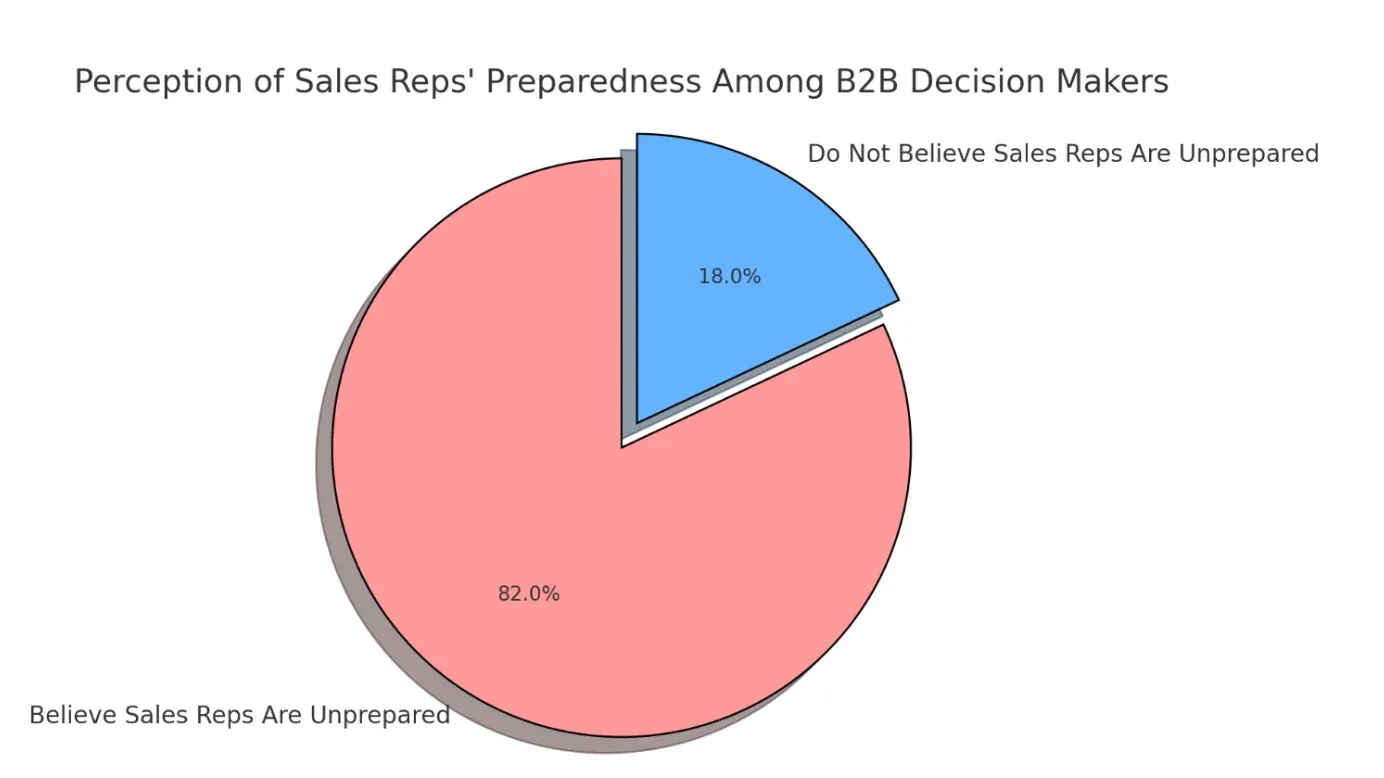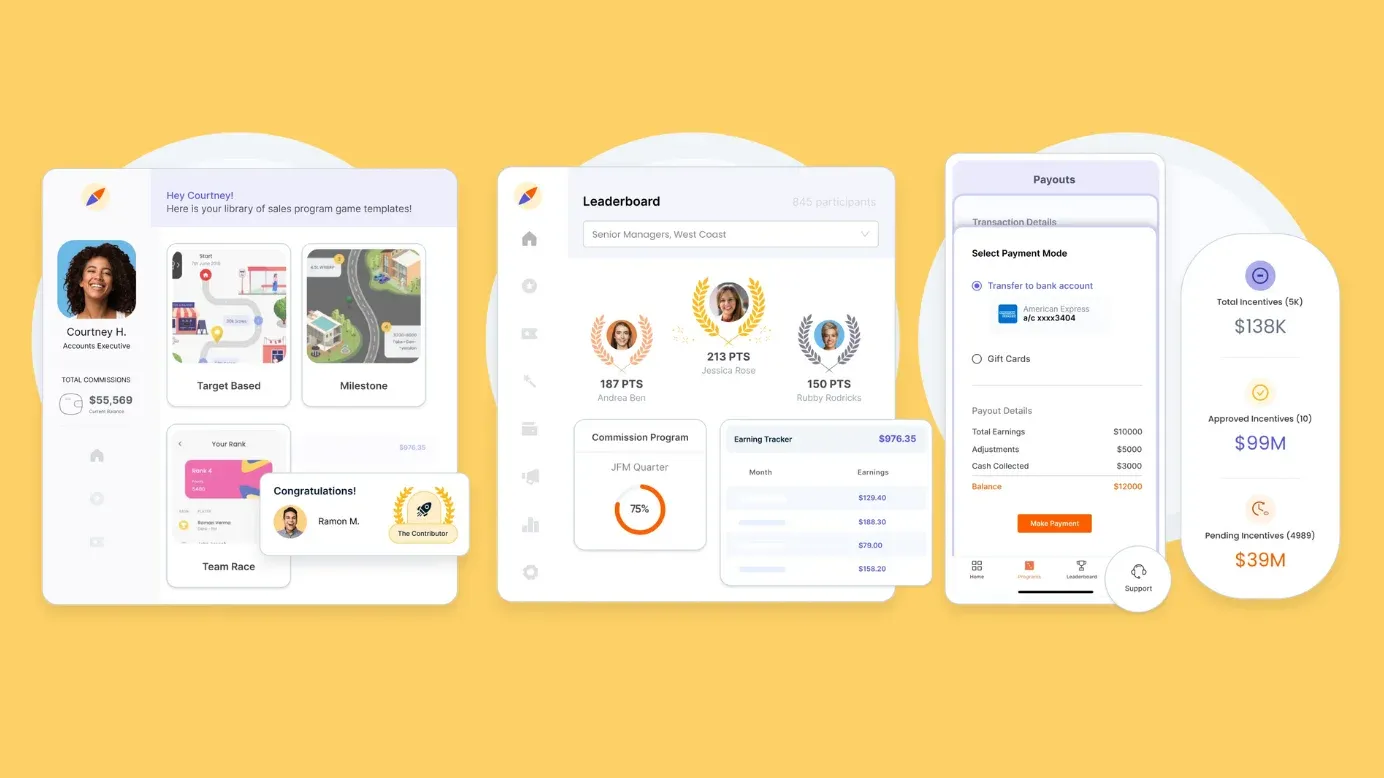Inhaltsübersicht
Sales teams always face more challenges in keeping prospects engaged and closing deals. The digital age changed how buyers behave. Hence, today's sales professionals need to change how they do things. This is where sales engagement software can be applied to change how sales teams operate.
According to a report by Gartner, as many as 87% of sales development organizations are now using sales engagement platforms. In comparison, 92% of the users reported that such tools are critical to their success. These platforms have time and time again been among the top performers in delivering a positive ROI.
It's a detailed guide on what sales engagement software, its top features, its significance in modern sales, and how to implement it in the best possible manner. This article reveals numerous valid ideas on where one can nail the sales strategy.
What is sales engagement software?
It's a single, holistic platform aimed at optimizing the selling process by providing sales teams a place through which they can manage and organize all interactions with customers, as well as automate routine tasks.
It tracks key metrics of engagement across all channels. Sales engagement software at its core works to enhance sales activity effectiveness and efficiency through features such as automating repetitive tasks, offering real-time insight into prospect behaviour, facilitating personalized communication that is scaled, and enabling data-driven decisions to be made.
By putting all sales tools and functionality into one platform, sales engagement software empowers reps to focus on what matters most: building relationships and closing deals.
Key features of sales engagement software
Let's look at the 4 main key features of sales engagement software:
1. Email tracking and automation
Email continues to be a very crucial mode of communication in selling. Leveraging advanced email capabilities in sales engagement software may include the following:
- Real-time track of email opens, clicks, and replies
- Automated email sequences based on prospect behaviors
- Personalized email templates at various sales funnel stages
- A/B testing to optimize email performance
2. Call tracking and recording
Calling on phones is at the heart of sales communication. The majority of the sales engagement tools include the following features such as:
- Click-to-call combined with CRM data
- Record all the calls for training and quality assurance purposes
- Call details and outcomes are automatically logged
- Voice analytics to identify positive call patterns
3. Meeting scheduling and calendar integration
It increases sales efficiency by fast-tracking the appointment-setting process. Features include:
- Integration with popular calendar applications such as Google Calendar, and Outlook
- Automated scheduling for appointment-based sales
- Booking pages for leads are customized
- No-show reduction with reminder notifications
4. Analytics and reporting capabilities
Optimizing sales performance relies on data-driven insights. Sales engagement software offers:
- Extensive dashboards with all key performance indicators
- Individual sales representative and team detailed activity reports
- Conversion analytics across various stages of the sales funnel
- Historical data, coupled with existing pipeline-driven forecasting tools
The importance of sales engagement software in modern sales
Here’s why sales engagement software crucial in modern sales:
1. Building relationships with prospects
Today, competition is fierce, and building good relationships with prospects becomes more critical than ever. This sales engagement software enables:
- Consistent and timely follow-up.
- Personalized one-to-one communication, based on the behavior and preferences of a prospect.
- Multichannel engagement—email, phone, social media—in one place for a seamless experience.

According to a study, 82% of B2B decision-makers believe sales reps are always unprepared. Sales engagement software helps reps stay organized and informed so they can have meaningful interactions.
2. Improving sales team productivity
The road to sales success runs parallel to efficiency. Sales engagement platforms enhance productivity by:
- Automating regular tasks, so more time may be given to high-value activities
- Providing a single workspace for all sales activities
- Increasing collaboration among the team members
- Offer mobile access for on-the-go sales professionals
3. Data-driven decision making
The age of big data needs more informed ways of decision-making. Sales engagement software empowers teams with the following:
- Real-time analytics on sales activities and outcomes
- Insights regarding the most effective engagement strategies
- Data-backed forecasting for accurate revenue predictions
- Continuous improvement concerning performance tracking and analysis
How sales engagement software works
Following are the ways sales engagement software works:
1. Integrating with CRM systems
Generally, sales engagement platforms are integrated with existing Customer Relationship Management (CRM) systems like Salesforce or HubSpot. This kind of integration would allow for the following kinds of activities to be performed:
- Bidirectional sync between systems
- Enriched customer profiles with engagement data
- No need to switch back and forth between several tools—the workflow is streamlined
2. Automating outreach and follow-ups
Automation is a core part of sales engagement software, enabling one to:
- Create multi-step, multi-channel outreach sequences
- Triggered follow-up actions based on prospect activity
- Create task sheets for sales reps at the right time
3. Tracking engagement metrics
Engagement metrics tracking provides quite a lot of information, such as:
- Engagement score of leads and accounts
- Activity metrics: the number of emails sent, calls dialed, and meetings booked
- Content performance analytics
- Time-to-response and other metrics of efficiency
Top 5 sales engagement software
Below are the top 5 sales engagement software:
1. Compass

Compass is an AI-enhanced software to prepare sales commission plans, analyse sales performances, and make data-driven decisions for an increase in revenues and employee engagement.
2. SAP SuccessFactors
An end-to-end suite for sales performance management with modules on learning and development to drive improvement nonstop.
3. Varicent
Very strong in territory management and quota setting with a robust incentive compensation feature set for complex sales organizations.
4. Performio
Flexible commission calculation engine and real-time performance dashboards for immediate feedback.
5. Everstage
Focuses on gamification to drive motivation and offers smart pipeline analytics for accurate forecasting.
Best practices for implementing sales engagement software
Below are the best practices for implementing sales engagement software:
1. Choosing the right software
Select a sales engagement platform that's right for your business. Consider the following:
- Your particular sales process and needs
- The kind of integration that can be done with other tools
- Scalability into the future
- User-friendliness and potential adoption
- Budgeting and return on investment projections
2. Training your sales team
Implementation should be accompanied by the right kind of training:
- Provide live training
- Create user guides and documentation
- Offer refresher courses and continuous support
- Encourage opportunities for peer-to-peer learning and sharing best practices
For example, let's say a Sales Manager organizes a workshop in which reps practice using the new software for creating and sending personalized email sequences to various customer segments.
3. Regularly reviewing and adjusting strategies
To derive maximum value from sales engagement software, improvement should be continuous. This can be achieved by:
- Analyzing the performance data and checking the engagement metrics regularly
- Get feedback from sales reps on how effective their tools are
- Stay current with new features and the best practices of the industry
- Adjust strategies with data-driven insights
Example: Looking through the data for the last three months, the team finds that follow-up emails that go out in the morning on Tuesdays receive the best response rates, so they revise their automated sequences accordingly.
FAQs
What is the central purpose of sales engagement software?
Sales engagement software is designed to make selling easier by automating the administrative tasks of sales and providing specific insights that could be actioned on improving overall sales performance.
How does sales engagement software differ from CRM?
While CRM focuses on customer data management, sales engagement emphasizes actual activities and interactions happening during a sale.
Will the sales engagement software integrate with my other tools?
Most of these sales engagement platforms integrate well with popular CRM systems and other sales tools.
How does sales engagement software improve productivity?
It enables sales reps to focus on high-value interactions. The routine tasks are automated, offering a single workspace for each sales activity.
Does sales engagement software work for small businesses?
Yes. Most vendors have solutions that scale in or out to fit any business size.
How can I measure the ROI of putting in sales engagement software?
Some key metrics to look at will be an increase in sales productivity, higher conversion rates and a shorter sales cycle.
Is technical expertise required to operate sales engagement software?
Most are designed to be easy to use but technical skills may help in utilizing more advanced features.
How often do we need to revisit our sales engagement strategy?
These should be revisited regularly - at least quarterly, to revalidate that your strategies are working and to stay focused on the business goals.
Schlussfolgerung
Sales engagement software is a real game changer when trying to make sales strategies relevant and useful, driving efficiency and growth.
Implement a sales engagement platform, coupled with best practices like aligning the platform with your selling process, investing in team training, and analysis of data regularly. You'll be able to power up your team with deeper relationships and data-driven decisions.
Embracing this technology today is no longer an option - it's a need for sustainable growth within this competitive landscape. These analytics capabilities can propel your teams to be high performers, giving you an edge in succeeding in the modern digital era. Don't just adapt to the future of selling—lead it with the power of sales engagement software.




